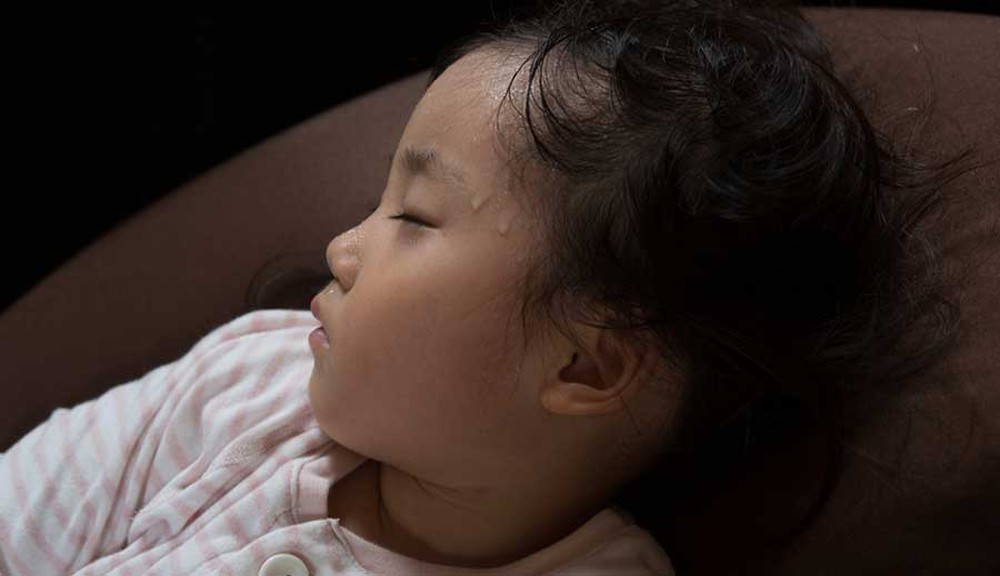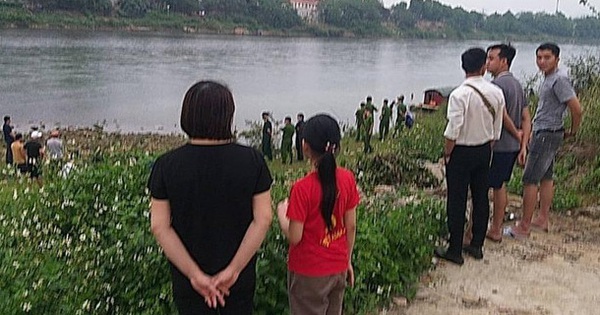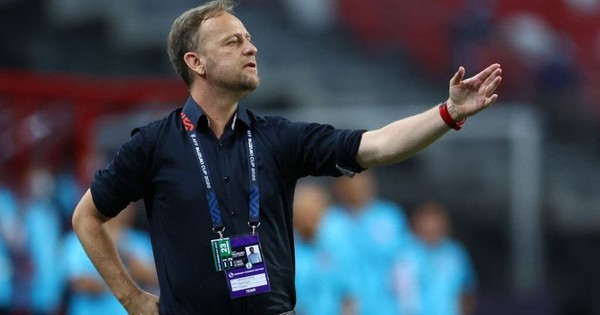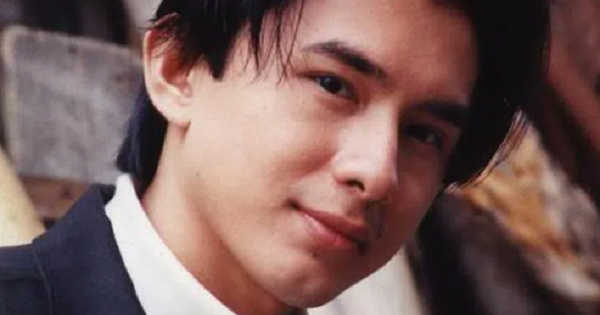Are sweaty clothes worth worrying about?
Ms. Thanh Huong, Ha Dong, Hanoi shared that her 3-year-old daughter often sweats. Even, she just sat down to eat with her family, but after the meal, her hair was wet. Many times when she came home from work, she saw that her children were just playing with friends normally, but the sweat was still wet.
At night, when going to bed, the baby’s back and hair are wet, sometimes even the bed sheet. Huong constantly has to monitor to dry her children’s back and change clothes.
Impatient because her son was sweating too much, she took him to the doctor. After doing tests, the doctor said that the baby was slightly deficient in vitamin D and zinc, so she suggested that the mother supplement the child. The symptoms of sweating are just normal physiology.
According to Dr. Truong Huu Khanh – Children’s Hospital 1, Ho Chi Minh City, Not only Huong, but many parents have also asked him about their children’s sweating. There are mothers who think that their children sweating is a lack of calcium, there are mothers who are scared that their children have malignancies because on the internet it is said that sweating can be cancer. The reality is that mothers worry too much.

Children with night sweats are mainly physiological
Many studies show that night sweats can happen to children of any age. This can happen often, but it can also happen occasionally. A 2012 US study of 6,381 children aged 7 to 11 years showed that nearly 12% of children experienced night sweats on a weekly basis.
Children have a very good metabolic mechanism to help them grow in height, brain… when metabolizing a lot, it can cause sweating in children. Therefore, the child’s body temperature is high and as long as the child is hot and does a little exercise, he will sweat drenched.
In older children, increased sweating may be due to hormonal changes. Puberty can begin at 8 years old in girls and 9 years old in boys. And this change can cause the child to sweat more. Puberty can trigger body sweats, day sweats, or just night sweats.
Children often have sweating all over the body or on the head and back. Depending on the environment and the items the child wears, the child may sweat in different places.
Dr. Khanh said that the majority of children with excessive sweating have normal health status and when examined, the results are usually physiological sweating. However, increased sweating can be an early symptom of a medical condition.
Night sweats can be a warning sign of tuberculosis, or if your child has Covid-19, he or she may also be sweating. Doctor Khanh said that if the child sweats at night with weight loss and prolonged cough, parents should take the child for a health check to rule out dangerous diseases.
Handling sweaty children
Dr. Khanh said that when children have night sweats, parents can handle it by changing the child’s shirt if the child’s shirt is wet. Because if children wear wet clothes, it can cause colds. Parents should choose an absorbent shirt for their child and often dry the child’s sweat.
If children sweat a lot, parents should give children rehydration drinks to avoid dehydration, parents can also supplement vitamin D for children because vitamin D deficiency can cause sweating.
When the child sweats, parents need to wait for the child to dry and then bathe as usual. Children should not be afraid of sweating without bathing because dry sweat makes children uncomfortable, itchy and can cause dermatitis for children.
For children who sweat a lot, parents should let the child wear cotton clothes and bring water to replenish the child’s water. For infants, breast milk is best for rehydration. For older children, parents can give children dilute salt water to replace the sodium, chloride, potassium and other electrolytes lost through sweating. If salt water is not available, parents can use filtered water.
at Blogtuan.info – Source: Soha.vn – Read the original article here



